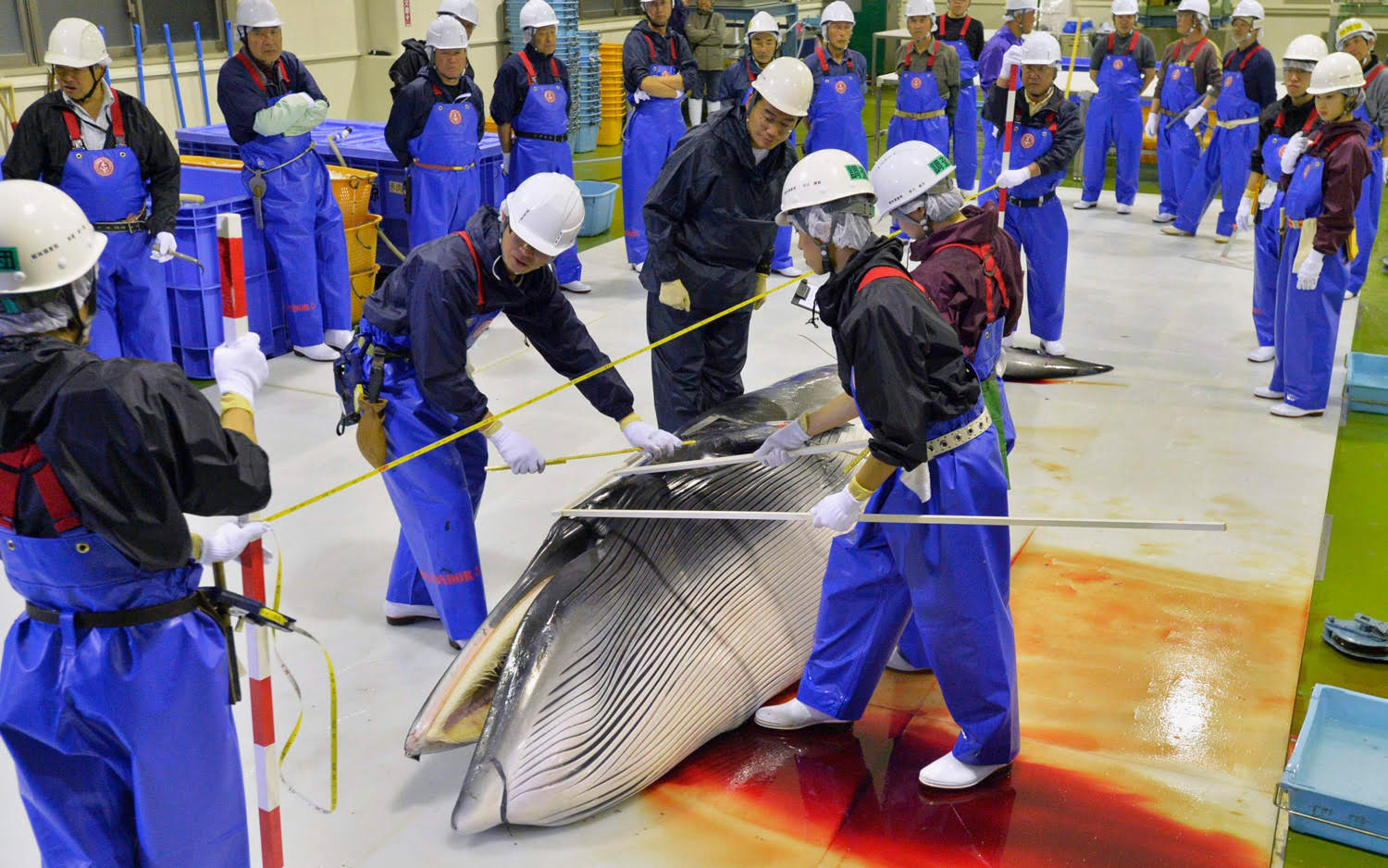Japan May Start Commercial Whale Hunting Again

Get the world’s most fascinating discoveries delivered straight to your inbox.
You are now subscribed
Your newsletter sign-up was successful
Want to add more newsletters?

Delivered Daily
Daily Newsletter
Sign up for the latest discoveries, groundbreaking research and fascinating breakthroughs that impact you and the wider world direct to your inbox.

Once a week
Life's Little Mysteries
Feed your curiosity with an exclusive mystery every week, solved with science and delivered direct to your inbox before it's seen anywhere else.

Once a week
How It Works
Sign up to our free science & technology newsletter for your weekly fix of fascinating articles, quick quizzes, amazing images, and more

Delivered daily
Space.com Newsletter
Breaking space news, the latest updates on rocket launches, skywatching events and more!

Once a month
Watch This Space
Sign up to our monthly entertainment newsletter to keep up with all our coverage of the latest sci-fi and space movies, tv shows, games and books.

Once a week
Night Sky This Week
Discover this week's must-see night sky events, moon phases, and stunning astrophotos. Sign up for our skywatching newsletter and explore the universe with us!
Join the club
Get full access to premium articles, exclusive features and a growing list of member rewards.
Japan plans to leave the International Whaling Commission so that it can resume commercially hunting the giants of the ocean, according to news reports from government sources.
While Japan has hunted whales under the guise of science since the 1980s, this would be the first time in 30 years that it hunted them solely for commercial purposes, Kyodo News reported.
The move drew a swift rebuke from Australia; and other anti-whaling countries will likely condemn the plan, as well, The Guardian reported. Japan is expected to give its final decision on the matter as early as next week, according to Kyodo News. [Images: Sharks & Whales from Above]
The announcement comes after Japan's latest attempt to pursue commercial whaling was rejected at an IWC meeting in Brazil in September. All commercial whaling has been banned by the IWC since 1984, but a few countries, including Japan, have found loopholes. For instance, Norway and Iceland use technical objections to get around the ban, and Japan historically has claimed it was hunting whales for scientific purposes, The Guardian reported. In addition, some indigenous groups are allowed to hunt whales for subsistence.
In the past, Japan attempted to get permission to commercially hunt just those whales that have greater numbers in the wild, such as the common minke whale (Balaenoptera acutorostrata), which is listed as an animal of "least concern" by the International Union for Conservation of Nature (IUCN). In contrast, the IUCN lists the Antarctic minke whale (B. bonaerensis) as "near threatened." Japan's commercial whaling proposals have always been stopped by anti-whaling countries, including Australia and New Zealand, Kyodo News reported.
If Japan leaves the IWC, it will have to abandon its so-called whaling research in the Antarctic Ocean. But, according to Kyodo News, Japan plans to stop these controversial expeditions anyway, and instead will direct its commercial whalers to seas near the country and to its exclusive economic zone.
Japanese government officials framed the issue as an economic one.
Get the world’s most fascinating discoveries delivered straight to your inbox.
"There are fishermen in Japan making their living by whaling, and we can't simply end it," an unnamed official told Kyodo News.
However, another fisheries agency official said that Japan has no intention of withdrawing from the IWC. "Japan’s official position, that we want to resume commercial whaling as soon as possible, has not changed," the official told The Guardian. “But reports that we will leave the IWC are incorrect.”
Japan has long towed the line with the IWC, which was established in 1948. This past spring, Japan faced pushback after it came to light that Japanese whalers had killed 333 Antarctic minke whales, including 122 pregnant whales and 114 calves, during the summer of 2017, Live Science previously reported.
Moreover, in 2014, the United Nations' International Court of Justice ordered that Japan stop its annual hunts in the Antarctic Ocean, because these hunts were clearly not for scientific purposes but rather for dinner menus. But one year later, Japan resumed hunting in the region, albeit with a reduced quota that was two-thirds of its previous catch, The Guardian reported.
Japan previously threatened to leave the IWC in 2007, but changed its mind after talking with representatives from the United States and other member nations, according to Kyodo News.
- Humpback Whale Rescue Photos | Whale Pictures
- In Photos: Tracking Humpback Whales
- Photos: Pilot Whales in Trouble off Everglades
Originally published on Live Science.

Laura is the managing editor at Live Science. She also runs the archaeology section and the Life's Little Mysteries series. Her work has appeared in The New York Times, Scholastic, Popular Science and Spectrum, a site on autism research. She has won multiple awards from the Society of Professional Journalists and the Washington Newspaper Publishers Association for her reporting at a weekly newspaper near Seattle. Laura holds a bachelor's degree in English literature and psychology from Washington University in St. Louis and a master's degree in science writing from NYU.
 Live Science Plus
Live Science Plus










